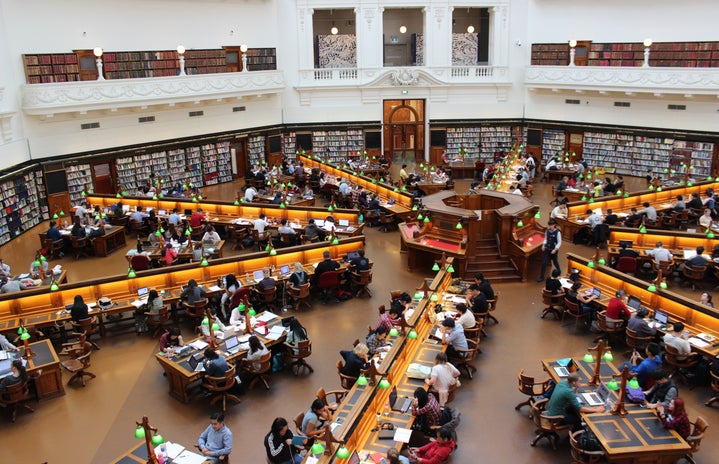Why is it, when someone tells me they “aren’t that into politics” it’s always a cis, heterosexual, able-bodied, neuro-typical, financially secure white man? Probably because they are the ones who can afford not to. People with these privileges don’t have to worry about politics, because they know they won’t be affected that much—their basic human rights will always be protected, and their interests advanced, and most of the people making the laws look a lot like them. This is why I think it’s really important that everyone is politically engaged. It’s frustrating to me when people choose not to be politically engaged—or not vote, just because they don’t care. Or vote but don’t sufficiently educate themselves, and vote for measures that sound attractive, or politicians because they’re trendy.
At the same time though, politics, the way they currently function, can be damaging to people’s mental health. Particularly in our current political environment, following the national news can be traumatic. In this case, it’s totally valid to take mental health breaks or lower your level of political engagement. Being politically engaged is important, but it’s not worth sacrificing your own mental health, and you shouldn’t have to be when it’s becoming detrimental to your mental health.
How do we balance these things? First, I think it’s important that we don’t police others’ political engagement. This is something even I have a hard time with—but I try. We can never know what’s going on in other people’s lives, and why they may choose not to engage with particular issues.
One thing that you can use to manage this is to regulate how you consume your news. I like to get my news from my local NPR station because I find it calming. They don’t sensationalize as much, as opposed to more sensationalized, social-media oriented news sources. I also enjoy my late-night comedy, to lighten things up, but I don’t think it’s a great sole source of news—we have to remember this news is biased, even when it’s biased towards views we might personally agree with. It can still be hard, though, because whatever medium you get it through you still usually have to deal with the stupid things Trump says.
What’s been the most helpful for me is getting more engaged in local politics than national politics. Local politics are often more compelling, more relatable, and a lot more concrete—you see results a lot faster, and they’re much more likely to have a direct impact. Because local politics generally get less attention, I’ve also found them to be less sensationalized than national politics, so they are more about real issues.
I still think it is important to be aware of national politics – especially with the presidential election next year, but when you need to take a step back, local politics can be a good way to stay engaged without taking as much of a personal tax from it. And it’s good for local communities too! The recent election had extremely low voter turnout because most off-year elections are local issues. More people—especially young people—voting in off-year elections has the potential to really cause positive change.


